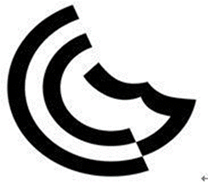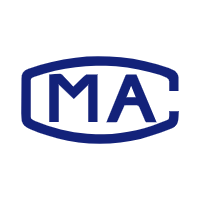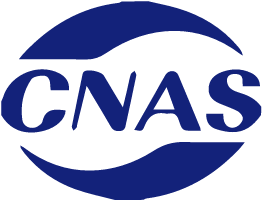
Certification introduction
GCC is the abbreviation of Gulf Cooperation Council. The Gulf Cooperation Council was established on May 25, 1981 in Abu Dhabi, UAE. Its member countries are Saudi Arabia, Kuwait, the United Arab Emirates, Qatar, the Sultanate of Oman, the Kingdom of Bahrain, and Yemen. The General Secretariat is located in Riyadh, the capital of Saudi Arabia. The highest authority is the Supreme Council, which is composed of the heads of member states, and the chairman is rotated by the heads of state for a term of one year. The political and economic systems of the six countries are similar, the royal family is closely linked, and they share common interests in politics, economy, diplomacy, and national defense. They are an important political and economic organization in the Middle East.
The GCC member countries have a total area of 2.67 million square kilometers and a population of about 34 million. The GDP in 2003 totaled about US $ 380 billion. The main resources are oil and natural gas, and they are important regional organizations in the Middle East. The six countries of the GCC are at the hub of the east-west hemisphere traffic and have a very important strategic geographic location. It borders Iraq and Jordan in the north, Yemen and the Arabian Sea in the south, the Arabian Gulf in the east, and the Red Sea in the west. The vast majority of the territory is desert, with a tropical desert climate.
Foreign trade occupies a very important position in the national economy of the six GCC countries. Due to its single economic structure, except for petroleum and petrochemical products, most of the other living and production needs rely on imports. The total annual import and export trade is about 240 billion US dollars, the main exporting countries are the United States, Japan, the European Union, South Korea, Southeast Asia and other countries, the main importing countries are the European Union, the United States, Japan and Southeast Asia.
The GCC logo indicates

GCC conformity mark
(1) Product companies meet GCC regulations.
(2) The product with the mark meets the requirements of GCC regulations.
(3) The product must not only meet the requirements of safety, public health, and consumer protection, but also meet the requirements of the GSO regulations.
(4) The legal person or enterprise is responsible for the product with the GCC Conformity Marking logo, and promises that the product complies with all applicable GSO regulations and has passed the conformity assessment procedure.
(5) In order to have multiple applicable GCC technical regulations, GCC Conformity Marking indicates that the product complies with all applicable regulations. These regulations should be reflected in product labels and nameplates.
(6) Except for some exempt products caused by special economic reasons or administrative measures, all regulated products must be labeled GCCConformity Marking before entering the GCC market. Exempted products are only applicable to products that are not harmful to health, safety and related operability. These exempted products must be notified by the GSO to all Gulf Member States.
(7) The pattern of GCC Conformity Marking cannot be too large or too small, and it should be related to technical regulations.
(8) If the relevant regulations stipulate the size of the GCC Conformity Marking mark, the mark height must be greater than 5mm.
(9) The GCC Conformity Marking logo should appear in an appropriate location according to the nature of the product, such as fixed or printed on the product label, or printed on the product packaging or printed on closed documents according to regulatory requirements.
(10) GCC Conformity Marking requires clear, readable, and not easy to wear.
(11) The GCC Conformity Marking logo is made and pasted at the stage of finished products.
(12) The GCC Conformity Marking logo must carry the identity code of the notified body
(13) No other deceptive logos similar or similar to the GCC Conformity Marking logo are allowed.
(14) The GCC Conformity Marking logo can be linked to other national or international standards
At the same time, as long as these signs will not confuse GCCConformity Marking and will not limit or damage the readability of GCCConformity Marking.
(15) The GCCConformity Marking logo can be produced and pasted by the manufacturer, agency or the person responsible for GCC marketing of the product.
(16) The manufacturer or the agency of the GCC member needs to issue a statement stating that the company conforms to the relevant regulations of the form inspection and quality control system before making and pasting the GCCConformity Marking logo.
(17) The statement guarantees that the product meets the basic requirements and conditions specified in the GCC technical regulations. Or declare that the product is consistent with the sample tested by the notified body.
(18) Unless otherwise specified in the GCC regulations, all declaration documents shall be kept for at least 10 years.
(19) The statement and label contain at least the following:
A. The name of the manufacturer or the name of the agency in the GCC country;
B. Product identity characteristics, such as product name, model, model code and serial number, and similar data.
C. Standard regulations and technical guidelines adopted in product design and production;
D. Product grade or category (electrical appliances);
E. The person responsible for the product and its signature (manufacturer or legal agent of GCC member countries);
F. Declaration document-The declaration document explains the responsibility of the manufacturer or the responsibility of the legal agent;
G. The identity of the signer of the manufacturer or agency;
(20) The declaration file may contain other information, such as the name and address of the inspection and testing agency, and the name and address of the person responsible for the product.
(21) In order to prevent a product from having multiple applicable GCC technical regulations, the manufacturer may issue a statement to include all GCC technical regulations that the product meets in the statement.
(22) The declaration document can be provided to the market investigation and control agencies of GCC member states at any time.
GCC certificate
According to the form of postponement, the newly added standards need to be retested and submitted to the GSO together with the GCC certificate. GSO reserves the right to view other test reports and original data of other models. All test data must come from the company's own laboratory or from an independent laboratory recognized by GSO.
(1) For the models that have been certified and have been granted the GCC certificate, the manufacturer must re-submit the original copy of the new GCC certificate and the test report and original data of the new test item to the GSO Head Office.
(2) For newly-applied vehicle manufacturers, they must submit to GSO a certificate of compliance with GCC certification requirements and submit a test report that meets GSO requirements. Every year before the first shipment, the manufacturer should submit a certificate of conformity in English / Arabic to GSO to prove that the model meets the requirements of the Gulf vehicle standard.
(3) The manufacturer of semi-finished vehicles (such as chassis, etc.) also submits a certificate of conformity written in English / Arabic to the GSO in advance before shipping the first shipment of any type every year, and at least in advance to the standardization and metrology organization of the GCC country. The certificate of conformity written in English / Arabic proves that this type of vehicle is completed in accordance with the guidelines of the semi-automobile manufacturer and still meets the requirements of the relevant Gulf standard for vehicles.
Certification procedures
1. Complete the GCC certification consultation form and apply to the consulting company;
2. In accordance with the methods and requirements of the relevant Gulf standards, the company tests motor vehicles and tire products in GCC-approved laboratories;
3. The consulting company assists the company to produce technical and certification documents that need to be submitted to the GSO based on the test data;
4. GSO will review the documents submitted by the enterprise. If the review is qualified, the GSO will issue a GCC certification to the enterprise. If the review fails, the GSO will notify the enterprise that the application has not been passed, and inform the reason;
5. After the validity of the GCC certification expires, you need to re-create the application file for extension and apply for a new GCC certificate.
Precautions
(1) Before formal application, it is important to understand the relevant procedures of GCC certification. Since GCC certification is valid for one year and requires application materials to be submitted at least three months in advance, the GSO has a summer vacation of up to three months each year. Therefore, Chinese companies should pay special attention to mastering the time rhythm of GCC certification.
(2) The key to obtaining GCC certification for China's automotive products is to master some special requirements of GCC certification, especially to focus on some items that are different from China's mandatory standards or have more stringent restrictions, such as engine cooling systems, passenger car interior space and luggage Cabin volume, installation location and signs, material requirements for brake friction plates and batteries, and special requirements for power control systems and exhaust systems.
(3) As far as possible, Chinese automobile enterprises commission testing laboratories accredited by the GSO organization for testing and testing. The format of the test report content must meet the requirements, and the test cycle should conform to the GSO organization's view as a reasonable cycle, and the original records should be retained.
(4) During the GCC certification, Chinese vehicles must be adapted to adapt to the requirements of high temperature, dusty, and humid environments in the Middle East. For cars exported to Middle East countries, the engine cooling system should be resistant to high temperatures and strong off-road performance, because the summer temperature in the Gulf area is as high as 40-50 ℃, and the winter temperature is also maintained at around 20C. The vehicle should be equipped with a large water tank to enhance the heat dissipation of the engine through the circulation of large water flow. Use large fans, large batteries, large generators, and high-power air conditioners (no heating); use wide tires and tires to increase the ply layer in order to withstand high temperatures, use windproof sand paint, improve the surface hardness of the car, four-wheel drive, enhance off-road performance; Improve car interior decoration.
(5) The configuration and interior of the vehicle must conform to the characteristics of regional culture and demand (instructions in Arabic, interiors that conform to the characteristics of Islamic culture, and large luggage space).
(6) Strengthen the after-sales service of vehicles.


BSCI certification is an abbreviation of BusinessSocialComplianceInitiative, and Chinese is called business social standard certification. BSCI is an organization that advocates the business community to abide by social responsibility. At the same time, it is a non-profit organization.

CMA, the name is \"China Metrology Accreditation\", the abbreviation of \"China Metrology Accreditation\" in English. According to the provisions of Article 22 of the Metrology Law of the People’s Republic of China: “The product quality inspection agency that provides notarized data to the society must be evaluated by the metrological administrative department of the people’s government at or above the provincial level for the capability and reliability of metrological verification and testing. Qualified.\"

Laboratory accreditation is a third-party certification that CNAS has the ability to perform specific testing and calibration work for testing and calibration laboratories.
GCC is the abbreviation of Gulf Cooperation Council. The Gulf Cooperation Council was established on May 25, 1981 in Abu Dhabi, UAE. Its member countries are Saudi Arabia, Kuwait, the United Arab Emirates, Qatar, the Sultanate of Oman, the Kingdom of Bahrain, and Yemen.
Get a quote